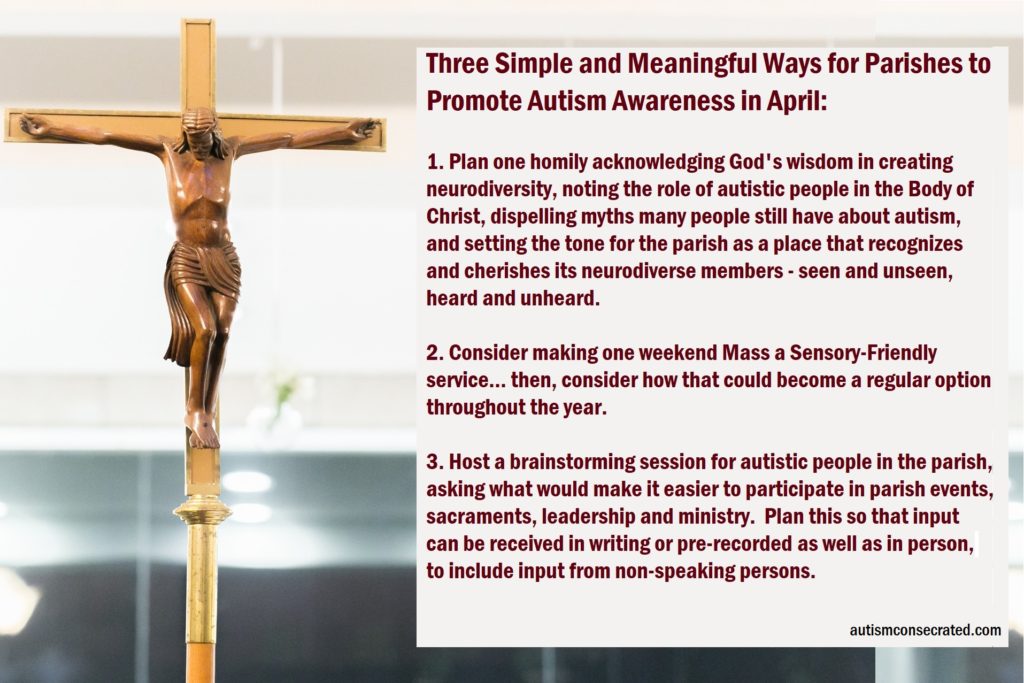Three Simple and Meaningful Ways for Parishes and Churches to Promote Autism Awareness in April (And Beyond)
(Note – the graphic is designed primarily for Catholic viewers and readers, but the text here has been adjusted to apply more universally to any Christian worship community. Feel free to share in your own circles!)
Three Simple and Meaningful Ways for Parishes and Churches to Promote Autism Awareness in April – And Beyond!
- Plan one homily or sermon acknowledging God’s wisdom in creating neurodiversity: noting the role of autistic people in the Body of Christ, dispelling myths many people still have about autism, and setting the tone for the parish as a place that recognizes and cherishes its neurodiverse members – seen and unseen, heard and unheard.
- Consider offering a sensory friendly worship service as part of the regular services one weekend… then, consider how that could become a recurring option throughout the year.
- Host a brainstorming session for autistic people in the church, asking what would make it easier to participate in church events, sacraments, leadership and ministry. Plan this so that input can be received in writing or pre-recorded as well as in person, to include input from non-speaking persons.

